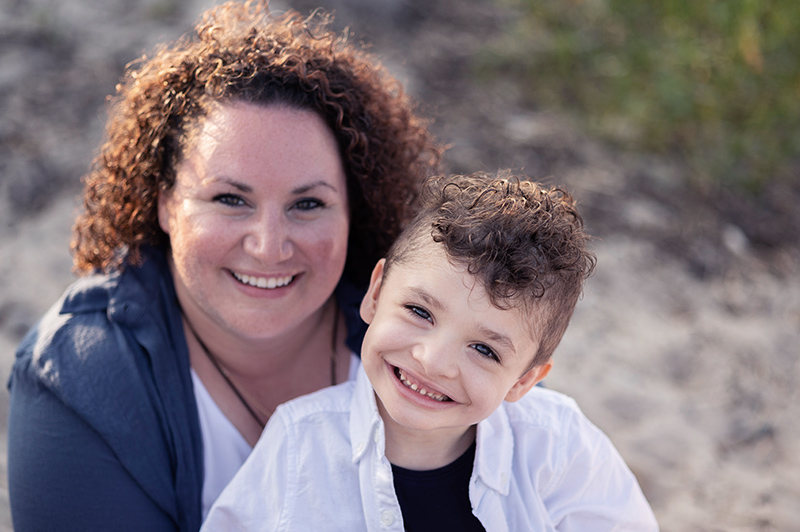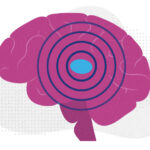Homecoming: Jack’s complex care brings a family back to Massachusetts

Georgia and her husband, Keith, moved to North Carolina from Massachusetts in 2015 with a dream of building a house and starting a family. Their plans changed, however, when their son Jack was born in 2017 with severe health complications, including a rare and severe form of childhood epilepsy called Lennox-Gastaut syndrome and a rare genetic disorder called Coffin-Siris syndrome 1 (ARID1B). These conditions have caused Jack to have debilitating seizures, as well as intellectual, developmental, and physical disabilities. When they found that the care and services Jack desperately needed weren’t available locally, they moved back to Massachusetts so he could be seen at Boston Children’s Hospital. While one vision they had for their life may have taken a detour, the move helped the family carry out a new one: giving Jack the best care possible.
“We just try and give him everything that we can,” says Georgia, “All we want is for him to smile.”
“Nobody could tell us what was wrong”
Jack was born full-term, but at six pounds, he was considered on the small side. By his first birthday, he weighed only 13 pounds and showed significant developmental delays, such as being unable to sit unassisted.
“Nobody could really tell us what was wrong with him,” Georgia says. “There were no solutions.”
Georgia and Keith were frustrated by the lack of answers but relentless in their pursuit. They changed pediatricians multiple times and requested referrals to specialists in various fields, including pulmonology, gastroenterology, and neurology. When Jack was 18 months, a neuropsychological evaluation revealed that he had autism. Georgia searched for schooling and applied behavior analysis (ABA) — a crucial intervention for autism — but couldn’t find affordable local options.
Living in rural North Carolina presented additional accessibility challenges. Georgia had to drive hours every day so that Jack could receive physical, occupational, speech, and feeding therapies – often with her newborn son in tow.
“I’d wait for hours in the car until Jack’s therapies were done and then drive home. And I would do that four days a week. It was a lot after a while,” Georgia says.
No place like home
After nearly three years of navigating scarce services and resources, Georgia and Keith returned to Massachusetts so they could access the care Jack needed.
As natives of the Commonwealth, they already knew about Boston Children’s and the care they provided to children with complex diagnoses.
“You always hear about Boston Children’s everywhere you go,” Georgia says. “And that’s where we wanted Jack to be.”
As they prepared to move, Georgia began coordinating next steps. This included speaking with Dr. Fred Kern, her pediatrician at Bridgewater Pediatrics, a Boston Children’s Primary Care Alliance practice, who happily took Jack on as a patient and introduced Georgia to Ashley Carter, a nurse case manager, to help coordinate specialist care.
“You can’t get these services elsewhere. You can’t get the compassion, the phone calls, the personal attention.”
– Georgia, Jack’s mom
“At that time, Jack only had about four specialists [overseeing his medical and developmental needs],” Georgia remembers. “Within days of meeting with Dr. Kern, that tripled. He has probably about 12 specialists now.”
Some of those specialists include Dr. Stacey Cook of the complex care service and Dr. Molly Tracy, a neurologist and epileptologist. Georgia says their guidance and support have made all the difference for Jack and her family.
“There’s a reason why we moved up here,” Georgia says. “You can’t get these services elsewhere. You can’t get the compassion, the phone calls, the personal attention.”
Cherishing moments
Over the last three years, Jack’s seizures have become a central concern of his care. While Georgia, Keith, and their family have become adept at managing much of Jack’s care and seizure management at home, their varied intensity often requires hospitalizations and medication adjustments.
It’s a roller coaster, but despite the ups and downs and uncertainties of Jack’s condition, Georgia and Keith are determined to give him what he needs to live every day to the fullest. This includes trips to the beach so Jack can feel the breeze on his face, cuddles with his favorite pillows, and lots of love from his family. Georgia says Jack’s resilience and spirit always shine through.
“He brings people together,” Georgia says. “He’s the glue of our family. He’s the one who can laugh, and it doesn’t matter if you’re having the worst morning. If you hear that laugh, it’s the best thing ever.”
Learn more about the Epilepsy Center and the Care for Children with Medical Complexity program at Boston Children’s Hospital.
Related Posts :
-

Inspired by her daughter, one mom helps families navigate complex epilepsy
Colleen Gagnon felt something wasn’t right soon after her daughter Niamh was born but tried to convince herself she ...
-

“Princess June” reigns supreme over Rasmussen syndrome
What do you call a “girly” 5-year-old who adores dolls and frilly nightgowns? If you’re one of June Pelletier’...
-

Thanks to Carter and his family, people are talking about spastic paraplegia
Nine-year-old Carter may be the most devoted — and popular — sports fan in his Connecticut town. “He loves all sports,” ...
-

The thalamus: A potential therapeutic target for neurodevelopmental disorders
Years ago, as a neurology resident, Chinfei Chen, MD, PhD, cared for a 20-year-old woman who had experienced a very ...





